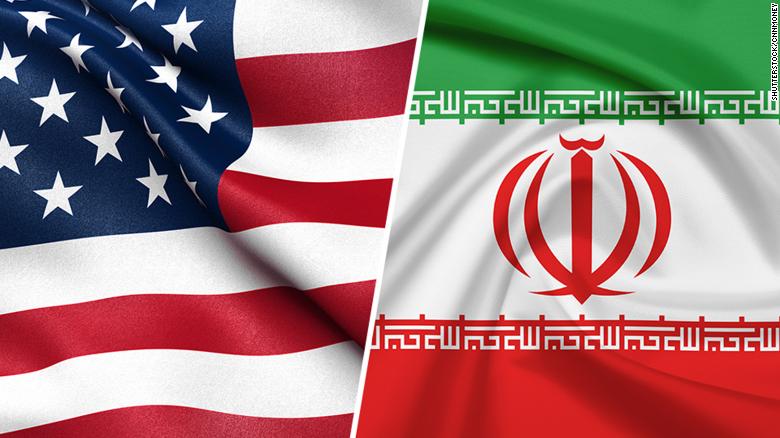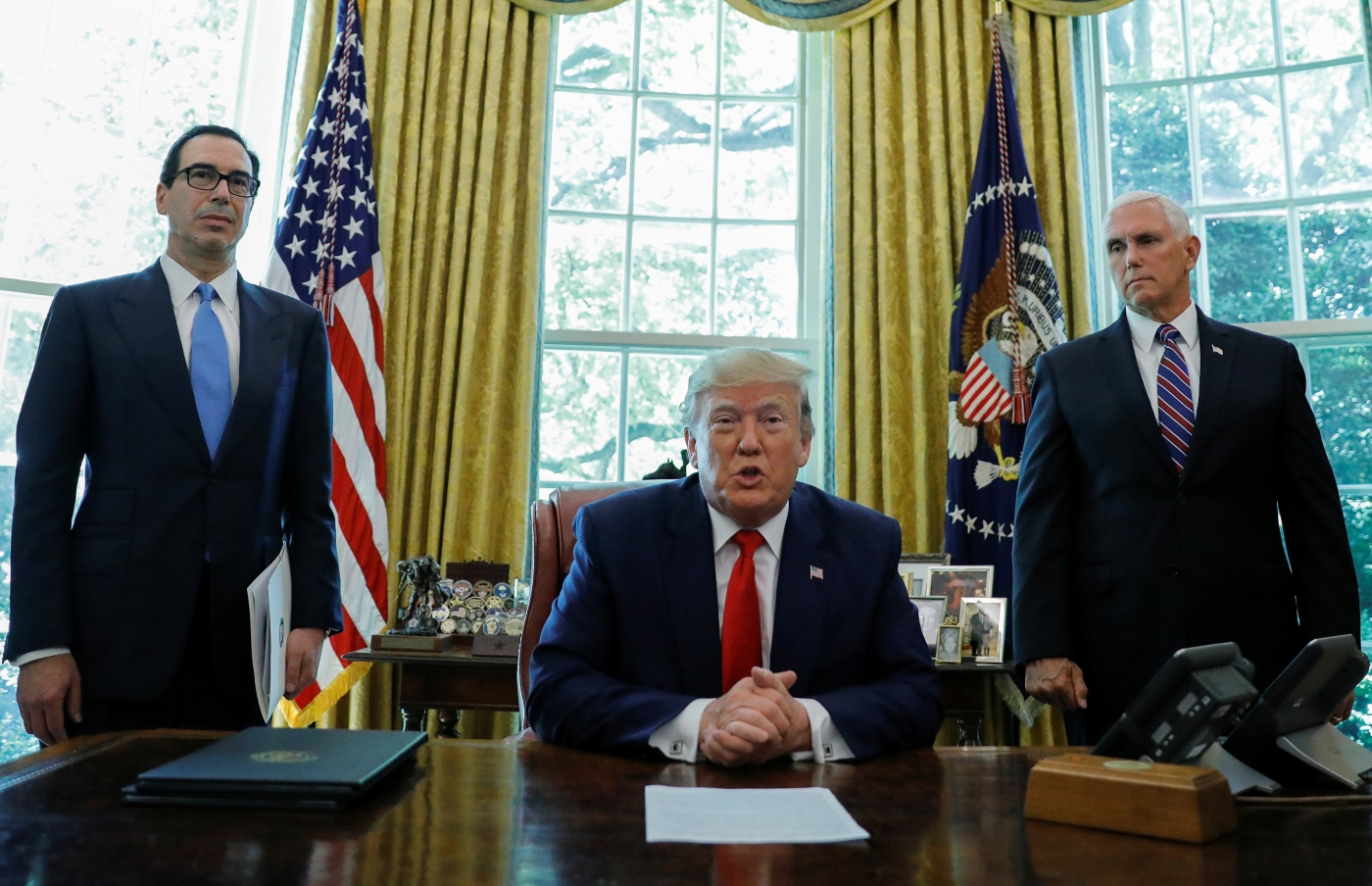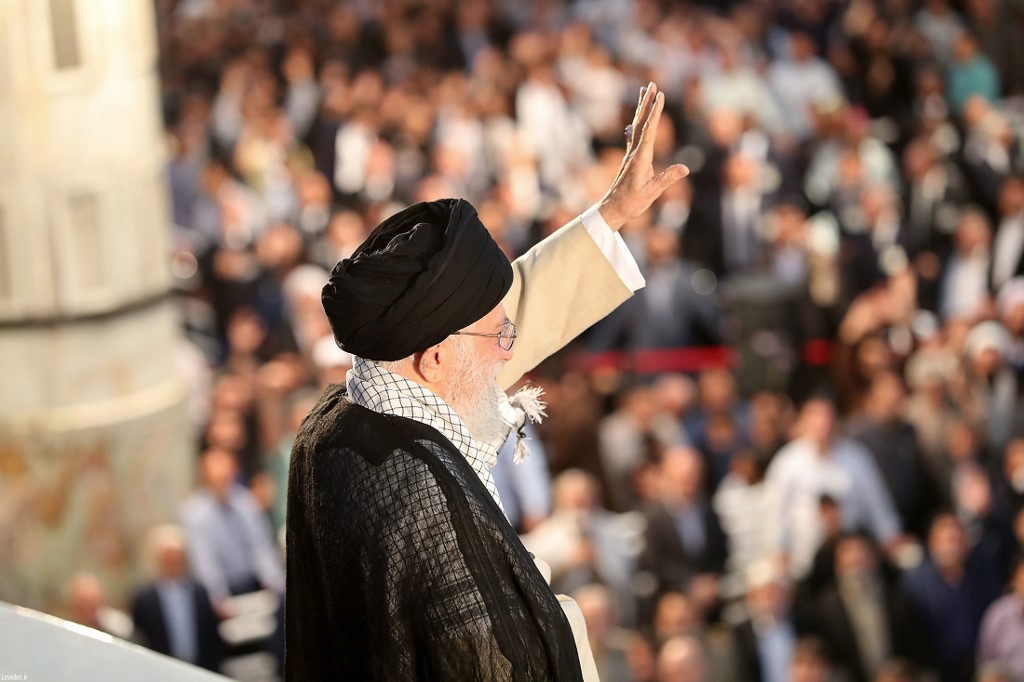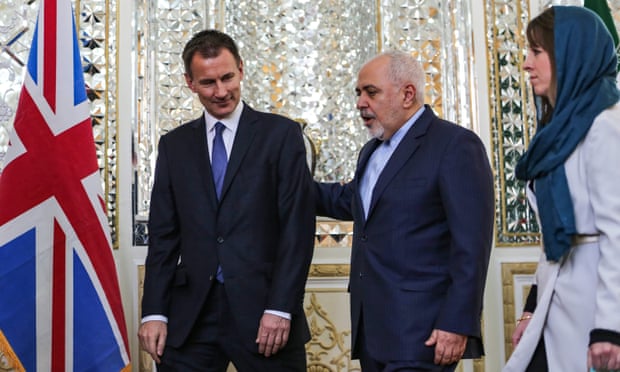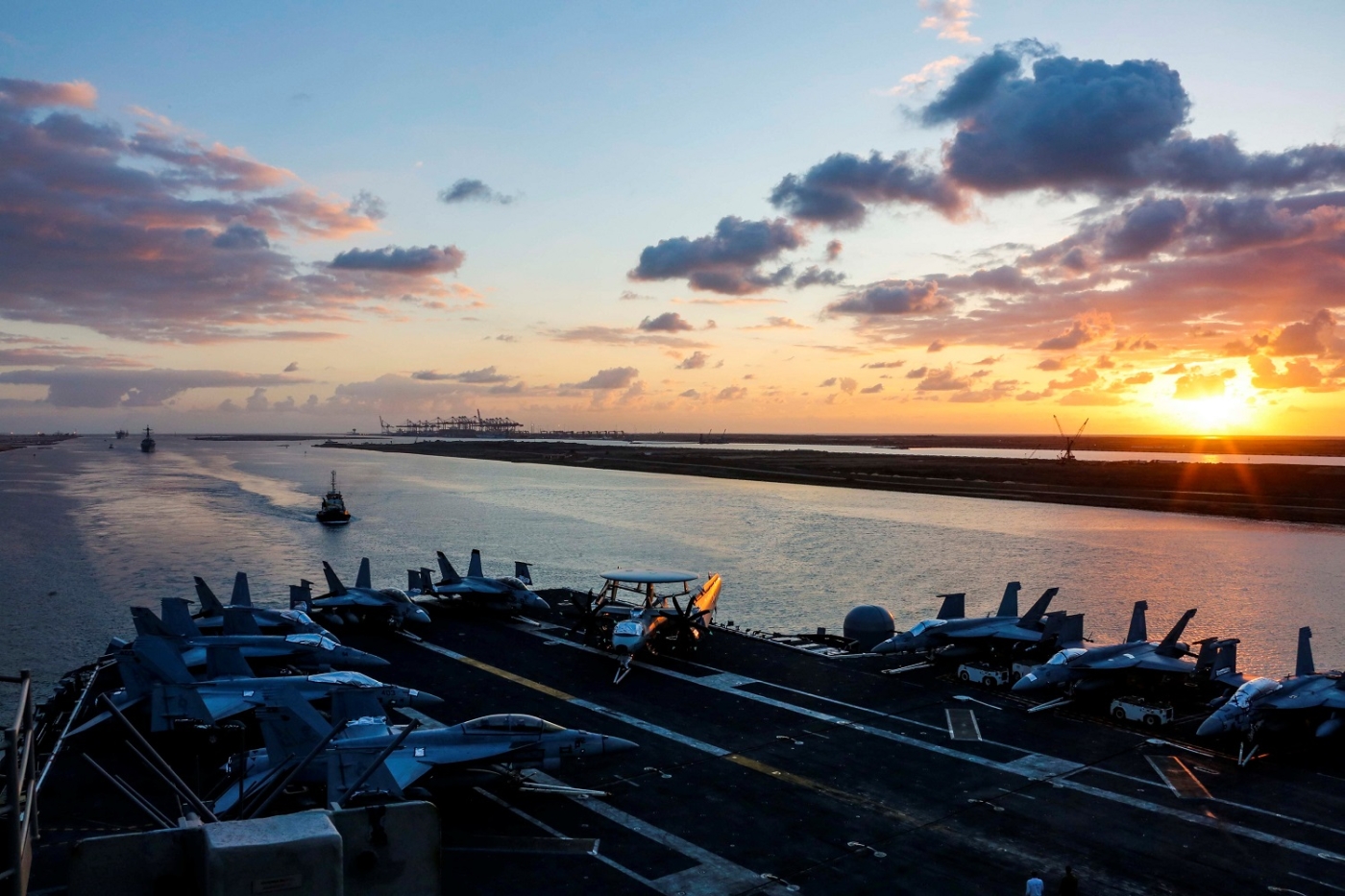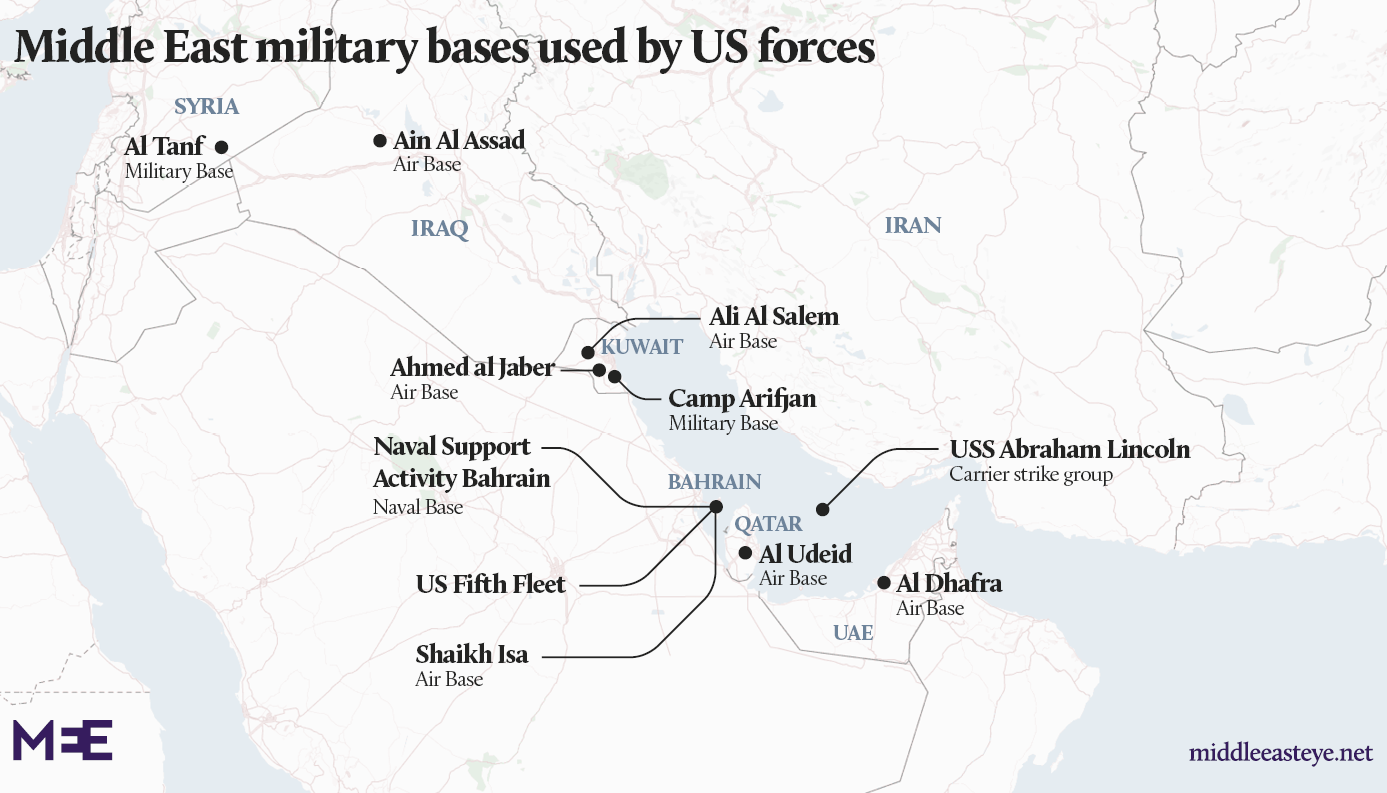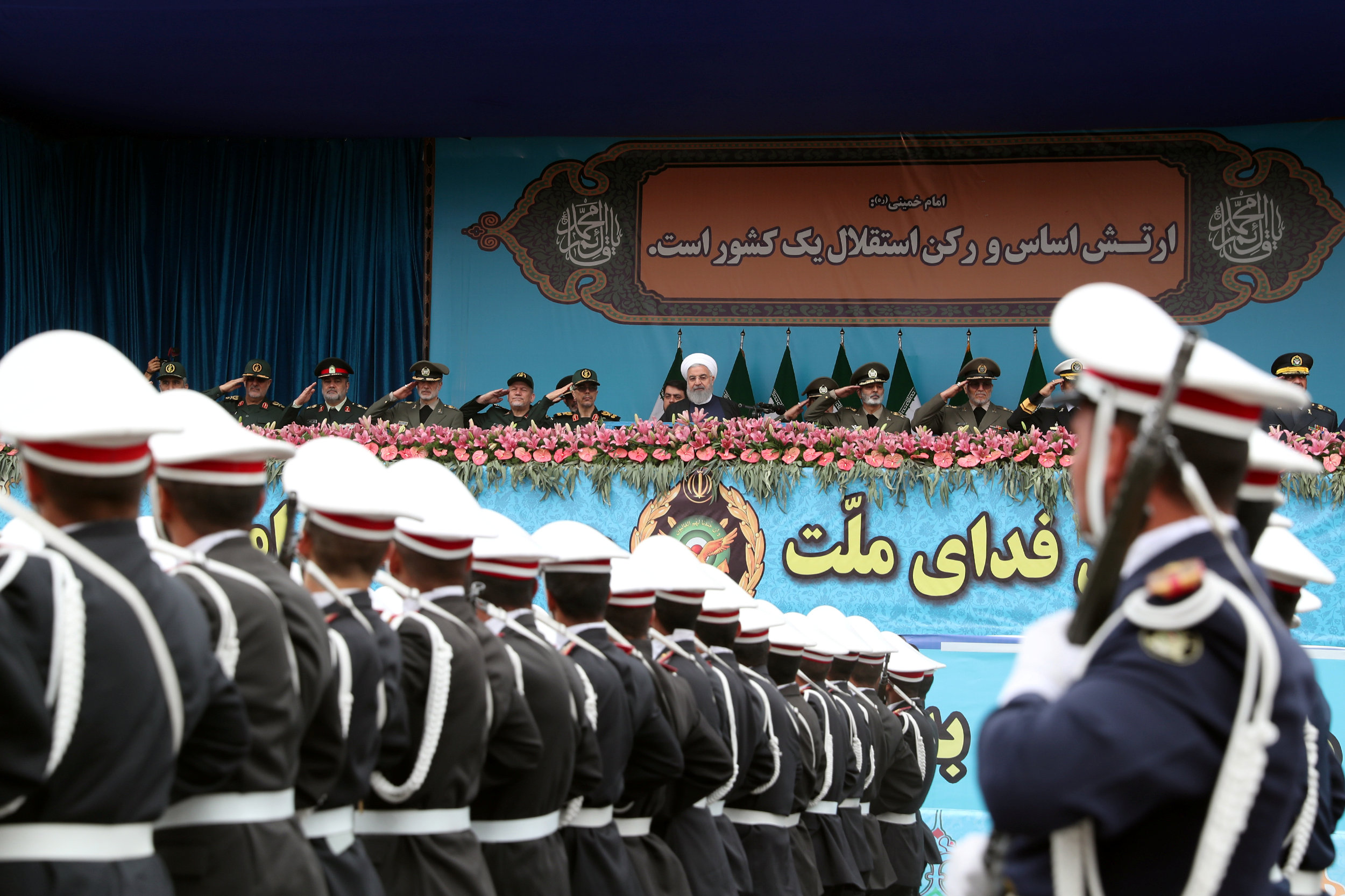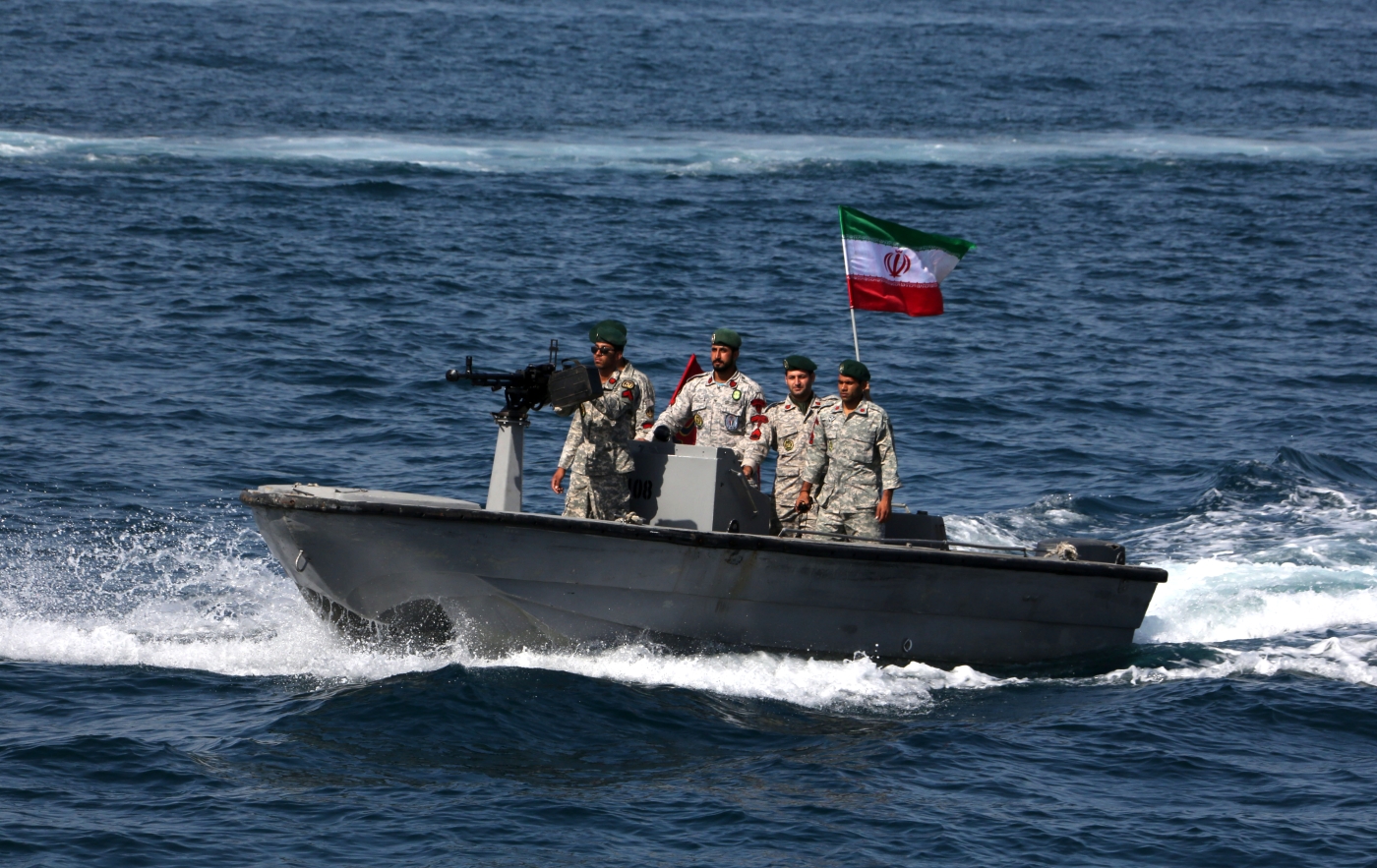'Thousands could die': Are US and Iran headed for war?
As Tehran-Washington tensions flare, analysts say direct conflict would be 'catastrophic' for entire region
Aircraft carrier USS Abraham Lincoln transits Suez Canal en route to Gulf on 9 May (Reuters)
By
Ali Harb
in
Washington
Published date: 10 May 2019 15:41 UTC | Last update: 2 months 3 weeks ago
https://www.middleeasteye.net/news/us-iran-war-devastate-middle-east-analysis
When US National Security Adviser John Bolton announced last week that Washington was deploying a naval strike group to the Gulf to send a "clear and unmistakable message to the Iranian regime", many likened the situation to the lead-up to the Iraq war.
Still, a military confrontation between Washington and Tehran would be nothing like the US-led invasion of Iraq in 2003, when American troops reached Baghdad in less than a month, analysts told Middle East Eye this week.
Instead, an all-out US war with Iran would have "hideous" ramifications and may spark deadly battles across the Middle East.
"In one word, it would be catastrophic," said Imad Harb, director of research and analysis at Arab Center Washington DC.
This week, US President Donald Trump reimposed a series of strict
sanctions on Tehran and did not rule out a direct military confrontation between the two countries.
That came after US officials warned about the possibility of Iranian attacks on
US forces and
commercial ships.
For its part, Iran announced plans to
pull out of parts of the 2015 nuclear deal that Washington abandoned last year, and called on European leaders to protect it against United States sanctions.
This latest round of tensions has led some observers to wonder whether some US officials, especially the interventionist hawks in the Trump administration, may be manoeuvring towards all-out war with Iran.
Should that happen, Harb painted a doomsday scenario in which Iran would not only retaliate against US troops in the region, but would also target the Arab Gulf countries hosting those American forces.
Tehran and its allies in Yemen may also block or at least disrupt the straits of Hormuz and Bab el-Mandeb, the passageways into the Gulf and Red Sea, crippling international trade.
"Iran is not going to go down without harming others," Harb said.
"We're talking about a Gulf that's anywhere between 35 and 70 miles-wide, and on the western coast ... we have Saudi and UAE installations. And Iran is not going to spare them if things really come to a head."
In fact, the same countries that have pushed the US to adopt a more confrontational approach to Iran - Saudi Arabia and the United Arab Emirates - may be the ones to pay the price if violence breaks out.
"The Gulf countries - Saudi Arabia and the UAE - should really be cautious about what they wish for ... because if Iran is to be vanquished, it's going to hit them really hard," Harb told MEE.
'The Iranians will respond'
Beyond the Gulf region, Iran has proxies and allies in Iraq, Syria, Lebanon and the Palestinian territories.
Tehran could respond to a US attack by persuading Hezbollah, its ally in Lebanon, to fire rockets on Israel, said Barbara Slavin, director of the Future of Iran Initiative at the Atlantic Council.
That would cause a "massive confrontation" in which Trump would come to Israel's aid, she said.
"Thousands of people could die. This could be just hideous," she told MEE. "That would be the worst-case scenario, that it expands and affects all kinds of civilian populations in a number of countries."
Despite the fatally disastrous consequences of a potential war, Slavin said the conflict does have the potential to escalate.
Acting US Secretary of Defense Pat Shanahan
vowed earlier this week to hold Tehran accountable for "any attack" on US forces and interests in the region.
In that context, an assault on US troops by an Iran-allied militia may start a spiral of escalation, Slavin said.
"It doesn't take much imagination to envision an absolutely horrible war that would bring in Iran's proxies and US allies, as well as US troops throughout the region," she said.
With US military bases and Iran-backed forces spread across the region, often in close proximity, any local confrontation could quickly escalate into a transnational conflict.
Kassem Kassir, a Lebanese journalist and author of the book,
Hezbollah between 1982 and 2016, dismissed the possibility of war but warned that if violence breaks out, it will not be limited to one battlefield.
Should the US directly strike Iran, all bets are off, Kassir told MEE in an email.
"The Iranians will respond. All the fields of confrontation will be open," he said.
Prospects of escalation
The recent tensions come a year after Trump withdrew Washington from the multilateral Iran nuclear deal that saw Tehran scale back its nuclear programme in exchange for a lifting of international sanctions.
Trump adopted a hardline on Iran from the start of his political career, but he has also voiced opposition to foreign wars, vowing to put America's interests first.
Still, the US president also has surrounded himself with hawkish policy advisers - and it's no secret that some of his top aides, including Bolton and Rudy Giuliani, Trump's personal lawyer, want to overthrow the Iranian government.
"I don't know when we're going to overthrow them. It could be in a few days, months, a couple of years, but it's going to happen," Giuliani
said last year at a rally for Mojahedin-e Khalq, an Iranian opposition group that was on the US list of terrorist groups as recently as 2012.
"They're going to be overthrown, the people of Iran have obviously had enough," Giuliani said.
For now, the Trump administration says its main strategy is to apply "maximum pressure" on Iran to get it to behave like a "normal state".
Last year, US Secretary of State Mike Pompeo issued a list of
12 demands that would effectively neutralise Iranian influence in the Middle East in order for the US to lift sanctions.
Among the requirements, Tehran would have to end its nuclear programme; stop supporting militant organisations in the region, including Hezbollah, Hamas and Iraqi paramilitary groups; and withdraw its forces from Syria.
Suzanne Maloney, deputy director of the foreign policy programme at the Brookings Institution, said the administration's ultimate goal is to either drastically change Tehran's behaviour, or to alter the "nature of the character of the Iranian leadership".
"The biggest threat is that of inadvertent escalation," she said.
"I don't think either side wants to precipitate a full-scale, bilateral military conflict. But it's clear that there are tools at the disposal of both countries that can be deployed in ways that could precipitate a crisis beyond where we are today."
Still, Maloney told MEE she is confident that tensions will remain contained, as they have in past crises, even at the height of the Iran-Iraq war, when Washington and Tehran had naval skirmishes in the Gulf.
"We can rely on some degree of mutual preference to avoid escalation," she said.
Alex Vatanka, a senior fellow at the Middle East Institute, echoed Maloney's remarks that neither side is interested in war.
"Here's what we do know. Iran doesn't want to go to war. The United States - certainly Trump - doesn't want to go to war. That, pretty much, [is what] we can bank on," Vatanka told MEE.
No 'deep planning'
In fact, Trump on Thursday urged Tehran to
call him and negotiate a "fair deal".
Despite the president's more conciliatory tone, ruling out a military confrontation between the US and Iran would be a "stretch", Vatanka said, as Washington's warning that it would blame Iran for any attack on US troops or interests in the region is broad.
"Somebody in Iraq can do something against US forces and the US can decide that somebody is tied to Iran and seek to punish Iran. That's how this could escalate," he said.
Iran has announced plans to pull out of parts of the 2015 nuclear deal (Reuters/File photo)
And while some members of the Trump administration have advocated regime change in Tehran, Vatanka said that's unlikely - toppling the Iranian government would require strategic planning, including cooperation with local partners who are willing to rise up together.
"I don't see that kind of deep planning from the Trump administration. What you could expect is punishment - aerial strikes against key targets in Iran - as a way of showing the Iranians that the US means business. But that's about it," Vatanka said.
"I do not expect boots on the ground or anything like Iraq in 2003."
This article is available in French on Middle East Eye French edition.
